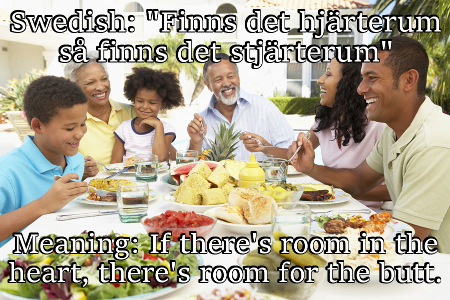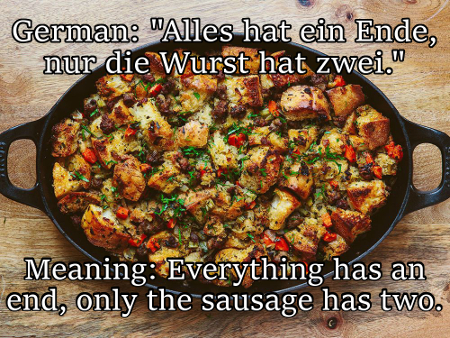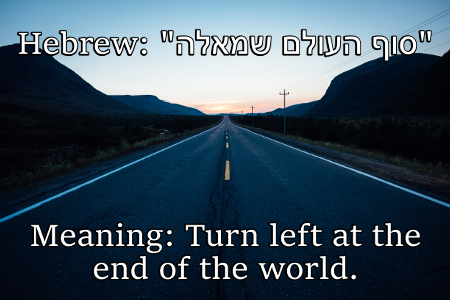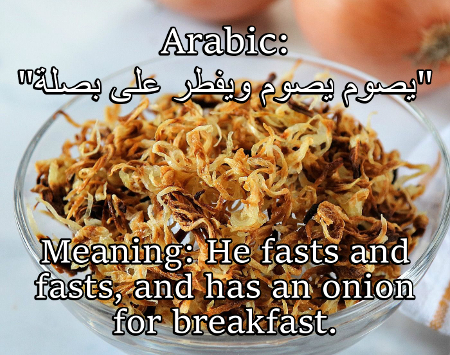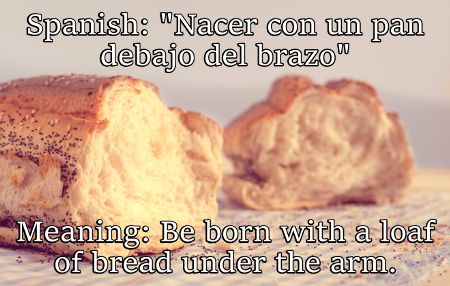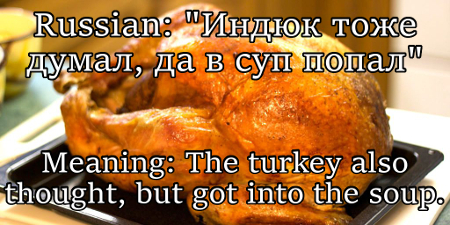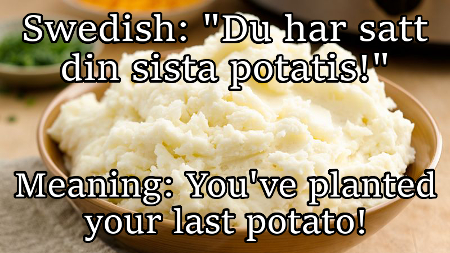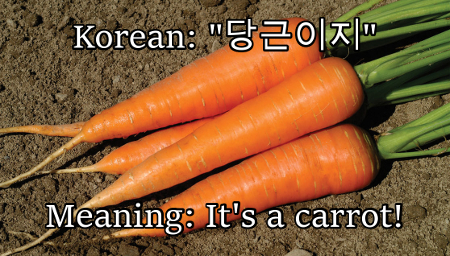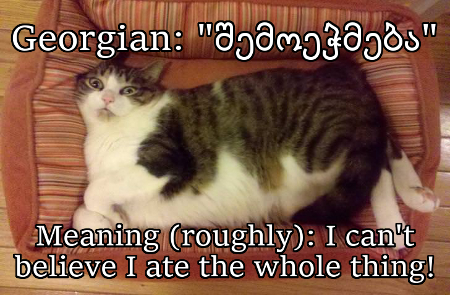
Prompt Images
From “Cold Turkey” to “The End of the Beans:” Thanksgiving Idioms From Around the World
It’s the weekend after Thanksgiving. You’re thinking back on the bounty you experienced a few days ago, pulling out a plate piled high with leftovers from the fridge. You’re just about to dig in for lunch when when you read on someone’s Twitter that they’re trying to stop smoking so they’re going to quit cold turkey—the same stuff you’ve just put out on the counter.
It’s a good thing you grew up speaking English. “People eat this cold?” you might otherwise think, staring at the plate you’re about to put into the microwave. “And why would not eating it help with quitting smoking?”
Quitting something “cold turkey” is a delightfully seasonal idiom, where the meaning of a phrase is very different from the meanings of its separate words. “Cold turkey” has nothing to do with a bird, and instead refers to doing something quickly instead of slowly. Many people associate it with drug withdrawals and the associated goosebumps and clammy, cold skin of the person affected. Merriam-Webster instead suggests an earlier origin, combining a meaning of the word “cold” (“matter of fact”) with “talk turkey” (“speaking plainly”). So, when someone tells you something cold turkey, they’re doing it quickly and not, as you might say, beating around the bush.
Idioms are a rich part of every language. This Thanksgiving, serve up some of these foreign idioms, all related to parts of the American Thanksgiving tradition.
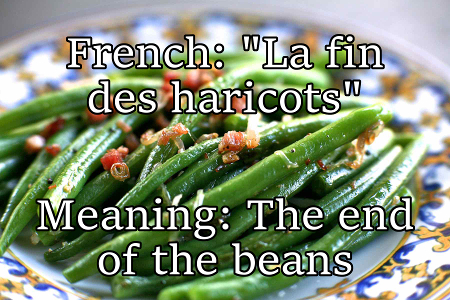
There’s so much savory goodness on the Thanksgiving plate. Turkey and stuffing with gravy, fluffy potatoes, and… oh, right, the pile of green beans in the corner. This French saying would agree with you: beans were something you’d only eat as a last resort, so if you reached the end of the beans, you were truly in dire straits. This saying is used in a sarcastic sense, similar to English’s “the end of the world:” when something isn’t really that big of a deal but it feels like it.
In English, we might say something simple is a “piece of cake.” Polish speakers, perhaps mindful that making and cutting cake isn’t the easiest thing in the world, use a more down-to-earth phrase. “Bułka z masłem” is a much more sensible way of saying something is easy and commonplace – just like your buttered dinner rolls.
This is a wonderful rhyming idiom with no clear English equivalent. Thanksgiving is a time for us to gather with friends and family, crowding around the table. If someone else shows up, you’d find a way to make a seat for them at the table—so if there’s room for them to have a place in your heart, you can find a way to get them a place to sit.
If you’re making sausage stuffing by hand, it might seem like an endless task. With this saying, you can fortunately take heart that nothing lasts forever AND that sausage is such an integral part of German cuisine.
With GPS on everyone’s phone these days, getting to your holiday gathering isn’t as tough as it used to be. But if someone lives far away “in the middle of nowhere,” you might use this phrase to describe where to go.
Cooked onions in casseroles are great, but can you imagine if the first thing you had in the morning was a raw one? That’s the meaning behind this Arabic phrase which is meant to convey disappointment in a plan that goes wrong after a great deal of setup.
Bread is a fundamental part of any meal, Thanksgiving included. You can’t start the feast without it, after all. So to be born with a loaf of bread under the arm means you’ve got it made: You never need to look far for your bread! The corresponding idiom in English is “born with a silver spoon in the mouth.”
You’re probably not eating turkey soup this Thanksgiving, but with lots of dinner guests around chances are good you’ll be able to use this Russian saying anyway. Turkeys are allegedly smart birds, but even the smartest of us make mistakes — whip out this sassy retort for when someone is wrong, and protests with, “Well, I thought…”
Let’s face it, there is a truly American Thanksgiving tradition of arguing with your family over politics when everyone’s gathered together. Hopefully it doesn’t get hectic enough that you need this saying, which expresses the same frustration with someone as “That’s the last straw!”
This matter-of-fact phrase indicating “It’s obvious” or “Naturally!” is actually a Korean pun. The word for “carrot” (당근, dang-geun) and the word for “of course” (당연, dang-yeon) sound similar enough that young folks use the one as a slang term for the other. It’s not used in polite contexts, so you might not hear this one at the grown-ups’ table.
We’ll end with this one that could basically stand in for the word “Thanksgiving.” That feeling when something is so tasty you’re just going to keep eating even though you’ve already taken your belt off and your stomach is screaming at you? Yeah, that’s შემოეჭმება. Interestingly enough, Georgian has a related phrase with this verb to express affection — similar to the English “You’re so cute I could just eat you up!”


